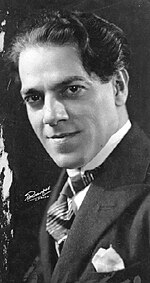The Bachianas Brasileiras are a series of nine suites by the Brazilian composer Heitor Villa-Lobos, written for various combinations of instruments and voices between 1930 and 1945. They represent a fusion of Brazilian folk and popular music on the one hand and the style of Johann Sebastian Bach on the other, as an attempt to freely adapt a number of Baroque harmonic and contrapuntal procedures to Brazilian music. Most of the movements in each suite have two titles: one "Bachian", the other Brazilian.

Chôros No. 11 is a work for piano and orchestra written in 1928 by the Brazilian composer Heitor Villa-Lobos. It is part of a series of fourteen numbered compositions collectively titled Chôros, ranging from solos for guitar and for piano up to works scored for soloist or chorus with orchestra or multiple orchestras. Chôros No. 11 is the longest in the series, a performance lasting over an hour.

Introdução aos Chôros: Abertura, is a composition for guitar and orchestra by the Brazilian composer Heitor Villa-Lobos, composed in 1929 as an overture to precede a complete performance of his series of fourteen Chôros. A performance of just the Introdução lasts about thirteen minutes.

Symphony No. 1O Imprevisto is a composition by the Brazilian composer Heitor Villa-Lobos, written in 1916. A performance lasts about twenty-five minutes.

Symphony No. 2, Ascensão (Ascension) is a composition by the Brazilian composer Heitor Villa-Lobos, written between 1917 and 1944.

Symphony No. 3 is a composition by the Brazilian composer Heitor Villa-Lobos, written in 1919. A performance lasts about 35 minutes.

Symphony No. 4, "A Vitória" (Victory) is a composition by the Brazilian composer Heitor Villa-Lobos, written in 1919. A recording conducted by the composer lasts just over thirty minutes.

Symphony No. 5, A Paz (Peace) is a composition by the Brazilian composer Heitor Villa-Lobos, written in 1920. The score has been lost.

Symphony No. 6Sobre a linha das montanhas do Brasil is a composition by the Brazilian composer Heitor Villa-Lobos, written in 1944. It lasts about twenty-five minutes in performance.

Symphony No. 7, Odisséia da paz is a composition by the Brazilian composer Heitor Villa-Lobos, written in 1945. A performance lasts about 30 minutes.

Symphony No. 8 is a composition by the Brazilian composer Heitor Villa-Lobos, written in 1950. A performance lasts about 25 minutes

Symphony No. 9 is a composition by the Brazilian composer Heitor Villa-Lobos, written in 1952. A performance lasts about twenty minutes.

Symphony No. 11 is a composition by the Brazilian composer Heitor Villa-Lobos, written in 1955. A performance lasts about twenty-five minutes.

The Piano Concerto No. 4, W505, is a composition for piano and orchestra by the Brazilian composer Heitor Villa-Lobos, written in 1952. A performance lasts about 27 minutes.

Piano Concerto No. 1, W453, is a composition for piano and orchestra by the Brazilian composer Heitor Villa-Lobos, written in 1945. A performance lasts about 38 minutes.

The Piano Concerto No. 5, W 521, is a piano concerto by the Brazilian composer Heitor Villa-Lobos, written in 1954. One performance recorded under the composer's baton lasts 18 minutes, 48 seconds.

The Piano Concerto No. 2, W487, is a piano concerto by the Brazilian composer Heitor Villa-Lobos, written in 1948. A performance lasts about 28 minutes.

The Piano Concerto No. 3, W512, is a composition for piano and orchestra by the Brazilian composer Heitor Villa-Lobos, written in 1952–57. A performance lasts about 26 minutes.

The Guitar Concerto, W501, is a work for solo guitar and small orchestra written by the Brazilian composer Heitor Villa-Lobos in Rio de Janeiro in 1951. A performance lasts about 18 minutes.


